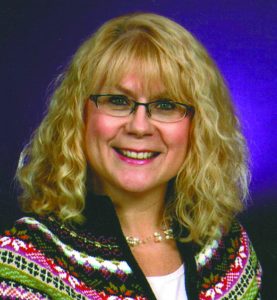July 26, 2016
Ask the Counselor
 By Kristi A. Manley, LMHC, LCPC
By Kristi A. Manley, LMHC, LCPC
Licensed Mental Health Counselor
Lutheran Family Service
Question: My son is an adult, but his drinking has really affected the whole family since he was sixteen. Now it seems to be affecting his health and his marriage. What can I do?
Answer: It is hard to watch your child suffer, regardless of their age. The American Society of Addiction Medicine acknowledges substance abuse and substance dependence as a disease process and as such, those affected by the disease, whether the user or the family member, are considered
sufferers. Now that your son is an adult, it is doubly hard to see the obvious effects of his overuse of alcohol on himself and others around him, knowing your influence over his choices and behavior is not as weighty as it once was.
There are things you can do, however, that could make a difference and move your son toward getting help and sustaining changes to his current substance use. Getting support for yourselves may be the place to start, by seeking out a counseling professional who will guide you with regard to setting healthy boundaries with your son and voicing your concerns in ways your son may find easier to hear. Criticism, lectures, blaming and shaming are never the way to go, as tempting as it may be sometimes. Rather, William Cope Moyers in his book: Now What? – An insider’s guide to addiction and recovery, suggests that parents keep the door open, with statements such as: “Our door is open to you whenever you are not impaired (i.e. drinking/using).”
Another great policy to have is: “Whenever you are ready, I’ll be glad to drive you to treatment day or night.” Paying overdue bills, bail or legal fines is not your responsibility. Those kinds of “help” are often the kind that a suffering family member may be pressed into providing, but are seldom effective in bringing about change in the using family member. Reverend Joseph Kellerman writes in his book: Alcoholism – A merry-go-round named denial, that “compassion is bearing with or suffering with a person, not suffering because of the unwillingness of the other person to suffer.” Dr. Anderson Spickard in his book: Dying for a Drink: What you and your family should know about alcoholism, states that “unless the painful consequences of drinking clearly outweigh its known benefits, the alcoholic is unlikely to surrender his or her right to drink.” If grandchildren are affected, you as grandparent can support the non-drinking spouse by helping with the daily needs of the kids, providing safe transportation when needed and a safe place to stay if you are close by. You can also validate the kids’ reality, and assure them that they are not responsible for “fixing” their using parent. Educate yourself and the grand kids about the “three C’s” of Al-Anon: You didn’t cause the disease, you cannot control the disease and you cannot cure the disease.
It is also helpful to remember are Al-Anon’s Five Myths of Addiction:
Myth 1) The alcoholic must want help before he/she can get it.
Myth 2) The alcoholic must hit “rock bottom” before he/she can get help.
Myth 3) The alcoholic will quit drinking on his/her own.
Myth 4) The alcoholic has a right to drink and no one has the right to interfere.
Myth 5) Efforts to help the alcoholic might make his/her drinking worse.
Educate yourself and other family members about the disease concept of addiction in which one views addiction as an illness and not a moral weakness. The disease process of addiction is characterized by the same features found in other chronic illnesses such as cancer and diabetes, which are: 1) Initial onset, 2) Chronic, 3) Progressive, 4) Recurring, 5) Fatal.
Knowledge really is power, as the saying goes. You can reclaim your peace of mind, integrity, self-worth, self-determination, control over your own life and emotions AND freedom from fear. For more information, contact: Kristi Manley, LMHC, LCPC (563) 359-0696 or kmanley@LFSiowa.org.
Kristi Manley is a licensed mental health counselor employed at Lutheran Family Service in Bettendorf, IA. She brings biblical values and a quiet faith to her work with individuals, couples and families seeking insight, support and encouragement to solve problems and move their lives forward. Kristi has four years’ experience in the assessment and treatment of chemical dependency.
Filed Under: News
Trackback URL: https://www.50pluslife.com/2016/07/26/ask-the-counselor/trackback/


